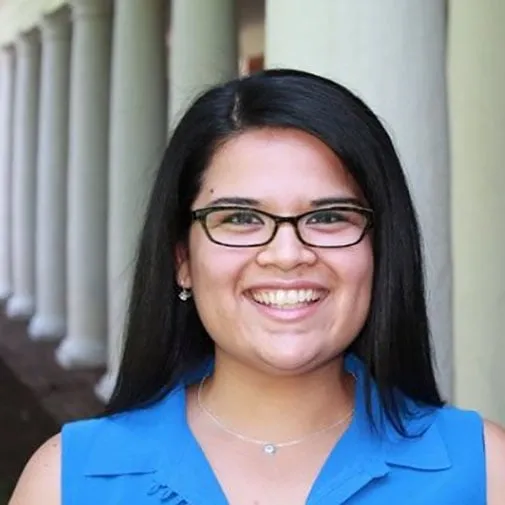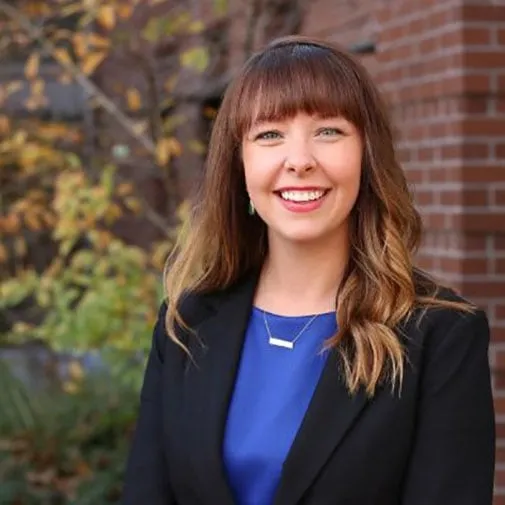
Landing Your Dream (Or At Least Your Pay-The-Bills) Job
Being prepared for your interview is essential if you want to make a successful first impression. Alicia Castillo Shrestha, BA '03, and Sarah Jester, BA ’08, share tips that will prepare you for that upcoming interview and make it something to look forward to.

Nailing Your First Impression
With Alicia Castillo Shrestha, BA ’03, associate director for career development at the University of Virginia
Success starts before the interview
Make sure you are professional and timely, and respond to any outreach you get. If you happen to be in a busy time in your life, with finals, applications, or interviews, set an auto-reply on your email to let people know that you might be a slow to respond but will get back to them as soon as possible.
Make sure your online presence is professional. A lot of times employers will Google search their interviewees. If you haven't yet checked your privacy settings, Google your own name to see what comes up. That's a really good thing to do to see what an interviewer might know about you that you might not know they know.
Dress for success
If you're interviewing for a start-up in Silicon Valley you might not be wearing a suit—you might be wearing new slacks and a blouse—so know the culture of the company you're interviewing with and dress appropriately. For some jobs it's going to be a suit, business formal, or business casual, but for others it's going to be different. Make sure you're in tune with that company’s culture to really showcase that you are the right fit for that particular position.
Arrive early
Be on-site 15 to 20 minutes early, but you don't want to check in more than five to ten minutes early because it can be an inconvenience to the people who are hosting you. It's very bad to be late, but don't arrive too early either.
Bring energy and enthusiasm!
Students can miss out on opportunities because employers just aren't that impressed; the candidate can say all the right things and have answers to every question, but the energy just isn't there and they don’t appear to be excited about the position. Everybody is reading you for your interest and fit, from the receptionist who greets you in the morning, to the person you ride in the elevator with, to your potential supervisor. You have to be “on” the entire time, and it is exhausting, but the energy and thought you put into that will really pay off.
Do your homework (no, it doesn’t end after graduation—sorry)
Do your homework on the company itself and the people you're going to be interviewing with. Look at the LinkedIn profiles of people you’re going to be interviewing with; they're not going to think less of you for doing that, they're probably going to be happy that you're actually putting in the work to understand them and the company.
There are Ducks in companies all over the world, so chances are good you’ll find someone who can speak to what it's really like at the company you’re interviewing with. A lot of students don't want to be a burden or ask for favors, but people love to share their wisdom. Definitely take advantage of that, because that can give you a leg up in the interview when you say, “I was talking to so-and-so about their role and this is what they mentioned.” Those kinds of details will show you've really done your homework and you are obviously are very interested.
Tell a story
Stories are much more memorable than job descriptions. Focus your story so that it shows the impact you have made in an organization. If an interviewer asks about your leadership potential or what your leadership style is, instead of simply stating, “While I was president of my sorority at the University of Oregon I got really good feedback from my constituents,” take it up a notch and, if you can, tell a story. “Well, when I took the leadership position in my sorority we were in a really tough place and we were losing money every semester, so what I did was…” and give them specific examples and results.
For every part of your resume, think about a story you have that can show your impact. It can show something new you learned; outcomes can be knowledge and skills acquired, it doesn't always have to be, “I increased revenue by 50 percent,” but, “I developed a keen understanding of this industry or I learned to use Excel pivot tables by doing this project.” Focusing on outcomes and every part of your resume will really be helpful.
Follow up
The follow-up is just as important is how you perform in the interview. A thank-you note is a common courtesy; you really want to show your gratitude for being interviewed. Within 24 hours, send an email to the person you've been in contact with, and your potential supervisor if you have their contact information. If there is a team you'd be working with closely, and you have contact information for those people, it might make more sense to send a thank-you note to the team at large. Read the situation to figure out what's going to be most appropriate—that's a great thing career advisers can help with as well.
If it happens to be an on-site interview where you actually went and physically met with folks, it's a good idea to consider a handwritten thank-you note and mail it the same day or the day after you interview to make sure that it gets to them in a timely fashion.
Ask about the timeline prior to leaving an interview, so you know when you should expect to hear from someone. Follow up if you haven't heard from them by the time that window has passed. Unfortunately, some companies just don't communicate with people if they're choosing not to advance them in the process, and that can be very frustrating because you don't know either way. Definitely check in after the time when you expect to hear back has passed, and maybe send another note two weeks or a week and half later.

Acing Your Answers
With Sarah Jester, BA ’08, assistant director, career strategy, Lundquist College of Business at the University of Oregon
"Tell me about a time when…"
Behavior-based interview questions are questions that start out with, "Tell me about a time when…" Why do you think interviewers ask these questions? They ask them to understand your past behavior because it's a really great indicator of future behavior. Talking about what you've done in the past and walking them through the process, and your thought process, is going to help them understand how you're going to behave on the job.
They're trying to know how you prioritize and plan things, and how you work on a team. You could say, "When working on a team, I think it's really important to set up many deadlines before a major one, so that everyone has check-ins and can stay on point, and an example of a time I did this was…" You would explain the situation, the task, the action and results. And then, you bring it back to their job. For example, "I'm looking forward to the opportunity to use my prioritization skills in this role."
The STAR Method
- Situation If you're answering the question, "Tell me about a time you helped your team meet a deadline," you may respond, "I had a team project in a class that I was in," and you would describe the situation.
- Task Talk about the task that you specifically had. Especially when working on a team, switch from "we" to "I". For example, "I specifically played this role on the team and made sure that I planned out everything so that we could meet our deadline."
- Action What actions did you take? This is when you're going to start thinking though the specific skills that you used. For example, "I used a Google calendar, and planned and booked every deadline we had, to meet our ultimate deadline. I communicated with all the team about their specific actions that needed to be completed in order for us to meet our overall deadline," and so on.
- Result What is the end result of your actions? You could say, "We ended up completing everything on time, we turned it in, and we received a great grade" or "We turned it in on time, presented to our clients, and they accepted our project." That's the result. If you want to take the STAR Method to the next level, think about answering the underlying questions first. Then give an example using the STAR Method, then connect it back to the job.
Prep for the Unexpected
You can't exactly know how to predict what examples they're going to ask you to tell about, or how they're going to word the questions. If you answer the underlying question, they're going to build questions based on what they're looking for. If they're looking for problem-solving, analyzing skills, communication, or teamwork, they’re going to ask you questions based on these skill sets.
What you can do to prepare is look at the job description, the values, and mission of the company. What are the things they're going to be looking for? Write them out, and put together two or three examples for each where you demonstrated that thing, or have a strong story using the STAR method. Outline it, and then you'll be ready to walk in with some really great stories. Prepare and think through the underlying question, and then you'll be able to address it in that way when answering.

